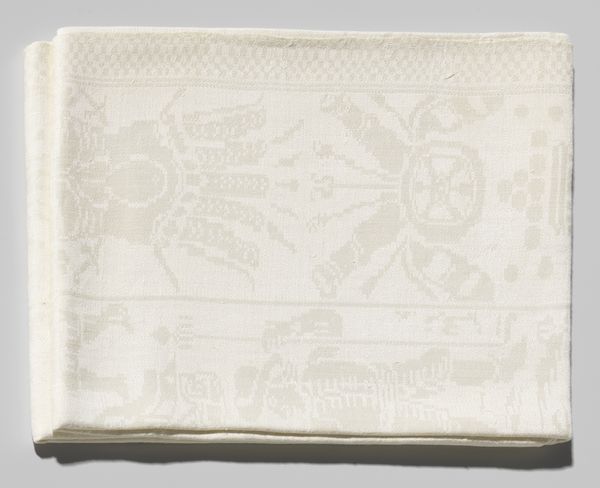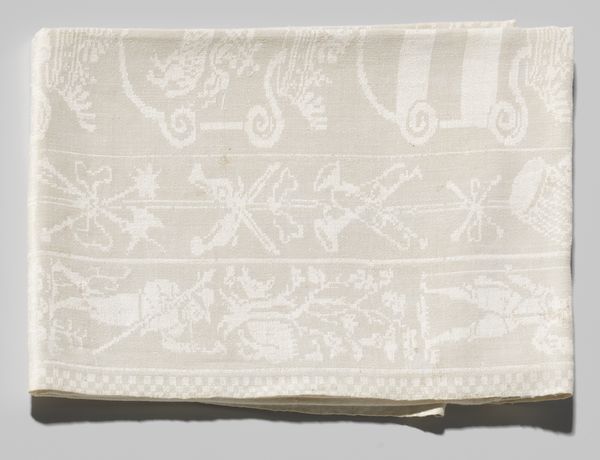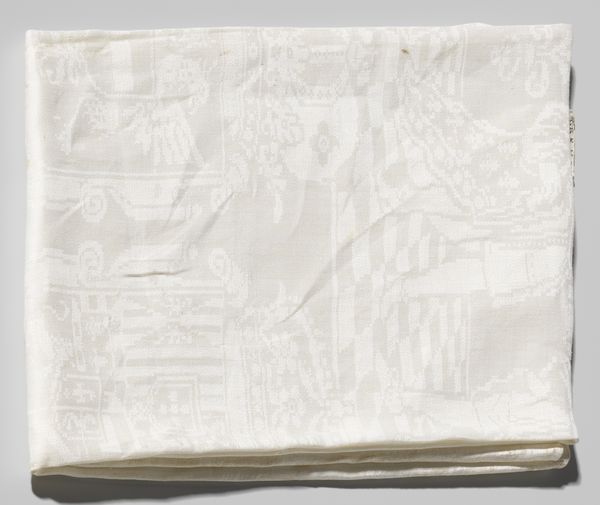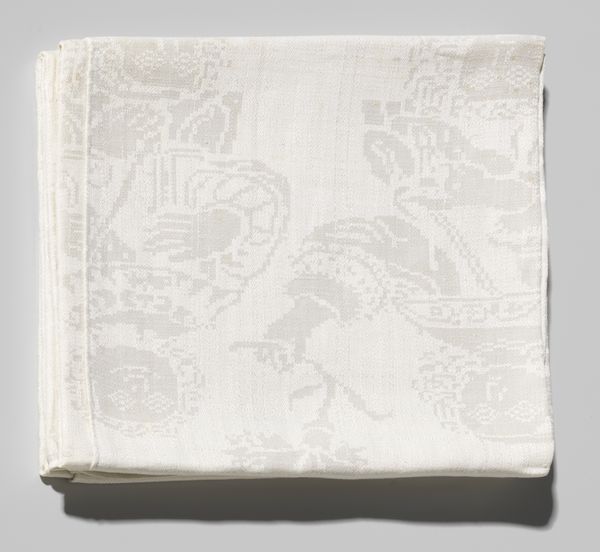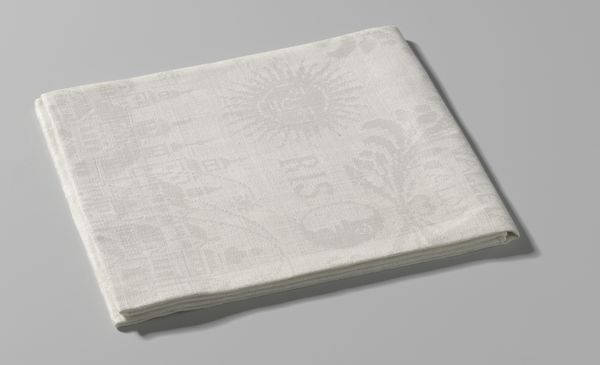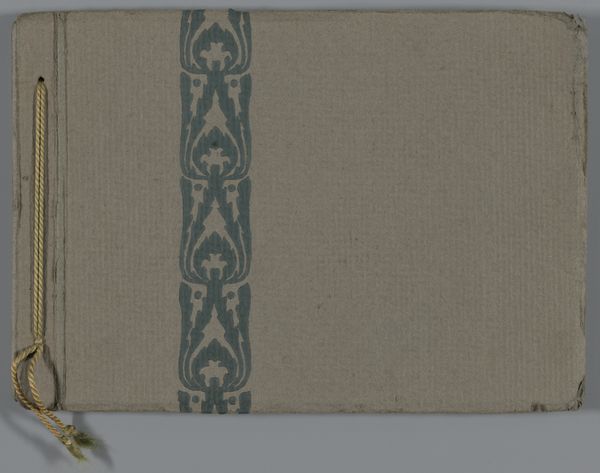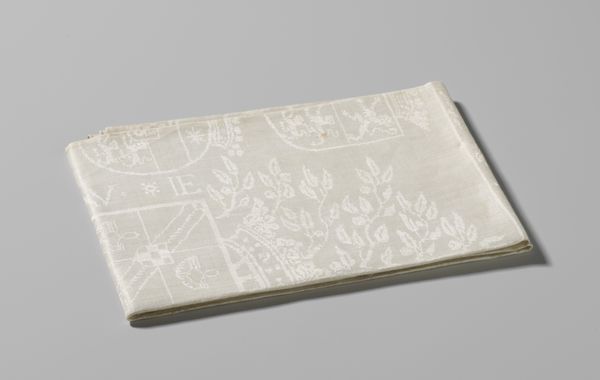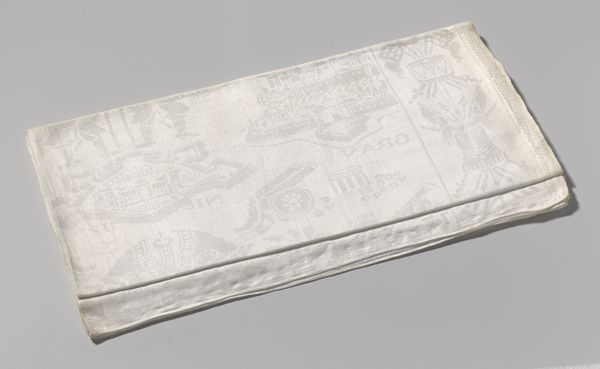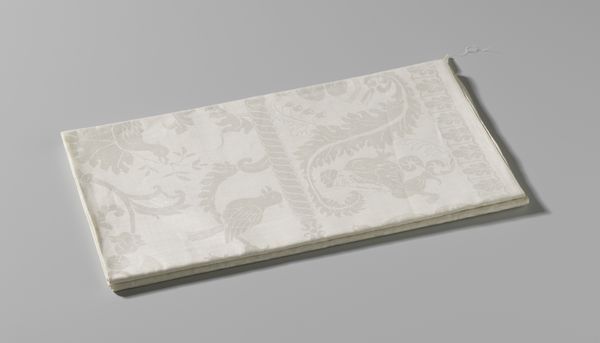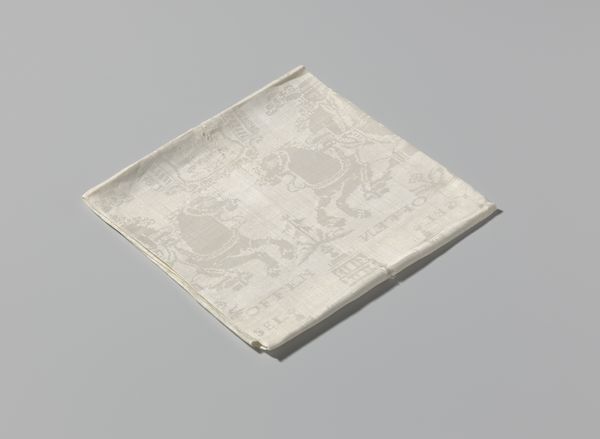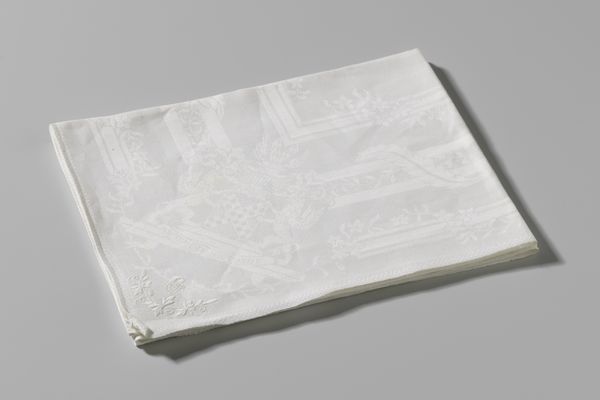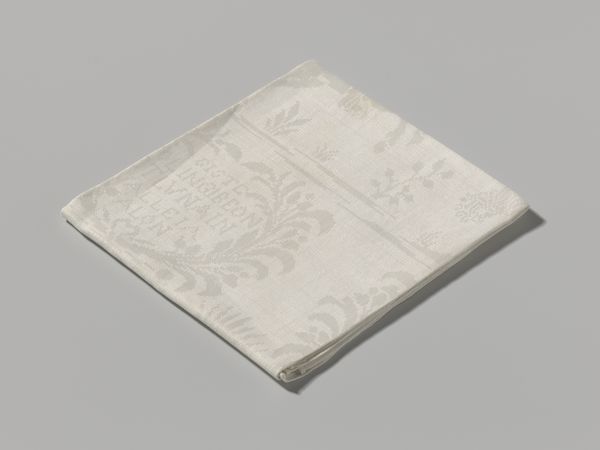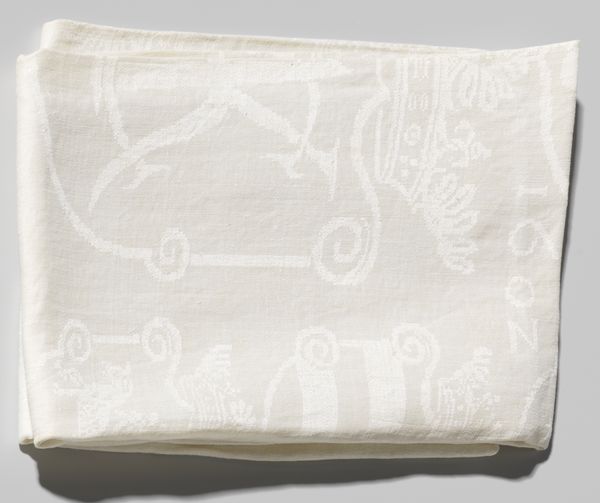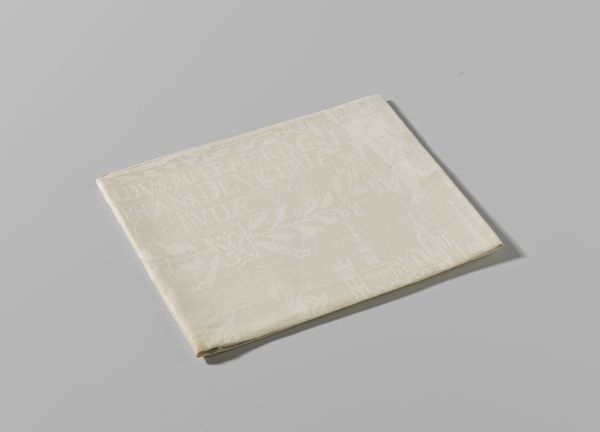
print, textile, engraving
#
baroque
# print
#
textile
#
engraving
Dimensions: height 117 cm, width 73 cm
Copyright: Rijks Museum: Open Domain
This damask napkin, undated and by an anonymous maker, commemorates William III's relief of Grave. These textiles served a dual purpose: they were practical household items and powerful conveyors of political and social messages. In the Dutch Republic, imagery was carefully managed, especially in times of conflict. By depicting William III, a pivotal figure in Dutch history, the napkin aligns itself with a narrative of national pride and leadership. The choice of a domestic item to carry this message is particularly interesting. It suggests that political allegiance and national identity were woven into the fabric of everyday life. Owning and using such an item might have been a subtle way for individuals to express their loyalty and participate in the collective memory of the nation. The study of textiles like this provides a tactile link to the past. Museum archives and historical societies hold similar pieces, offering insights into the tastes, beliefs, and social structures of the Dutch Republic. The meaning of this napkin, therefore, is inseparable from its historical and institutional context.
Comments
No comments
Be the first to comment and join the conversation on the ultimate creative platform.
